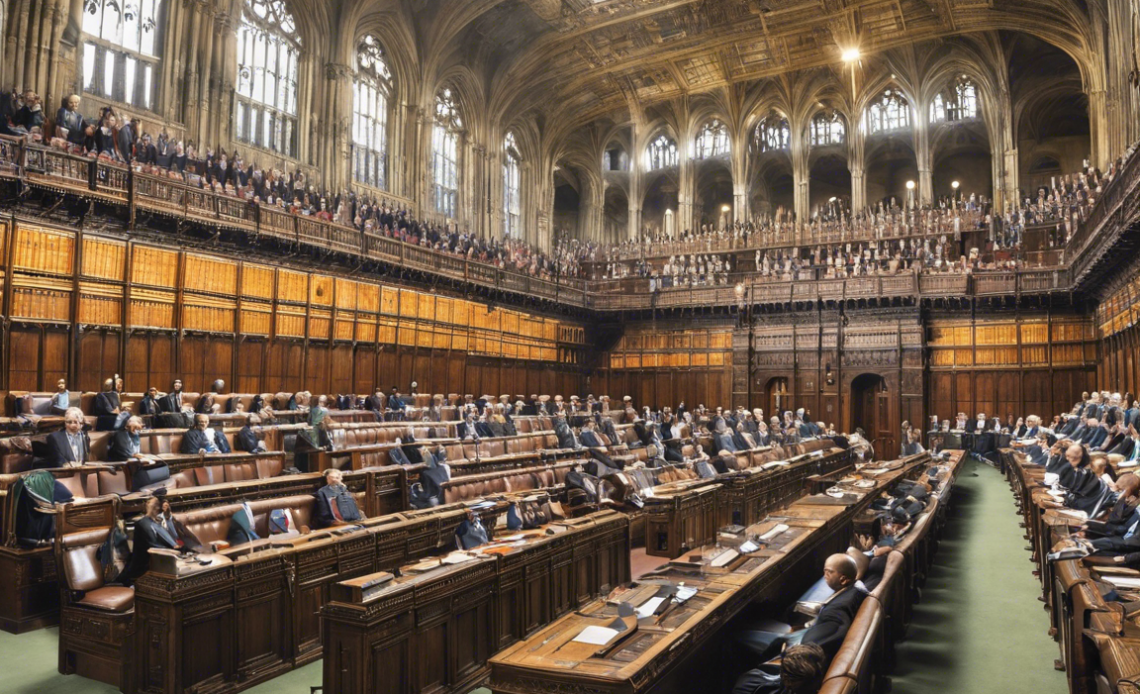
Introduction
Understanding the role and significance of Parliament is essential for students as it forms the cornerstone of a democratic society. As future citizens, knowing how Parliament functions and why it is important helps young individuals actively participate in the political process and make informed decisions. In this article, we will delve into the importance of Parliament for class 8 students, breaking down its functions, structure, and impact on society.
What is Parliament?
1. Definition: Parliament is the supreme legislative body of a country, responsible for making laws, representing the people, and overseeing the government.
2. Composition: It is usually divided into two houses – the Lower House (House of Representatives, House of Commons) and the Upper House (Senate, House of Lords).
3. Functions: The primary functions of Parliament include lawmaking, representation, scrutiny of the government, and safeguarding citizens’ rights.
Importance of Parliament for Class 8 Students
1. Lawmaking: Parliament plays a crucial role in passing laws that govern the nation. Understanding the legislative process helps students comprehend how laws are created and how they impact society.
2. Representation: Members of Parliament (MPs) represent the interests and concerns of the public. Learning about representation fosters a sense of civic duty and encourages students to engage with their elected representatives.
3. Government Oversight: Parliament holds the government accountable by questioning ministers, debating policies, and scrutinizing their actions. This accountability is vital for a functioning democracy.
4. Protection of Rights: Parliament enacts laws to protect fundamental rights and liberties. Students learn about the importance of these rights and how they are upheld through legislation.
5. Education and Awareness: Studying Parliament enhances students’ political literacy and civic knowledge. It equips them to participate in discussions, elections, and other democratic processes.
Structure of Parliament: House of Commons and House of Lords
1. House of Commons:
– Elected Members: MPs are elected by the public during general elections.
– Prime Minister: The leader of the ruling party in the House of Commons becomes the Prime Minister.
– Legislative Role: The House of Commons debates and votes on proposed laws.
2. House of Lords:
– Appointed Members: Lords are appointed based on various criteria, including expertise and hereditary peerage.
– Revision and Review: The House of Lords revises legislation, provides expertise, and serves as a revising chamber.
Functions and Powers of Parliament
1. Legislative Function:
– Parliament creates, passes, amends, and repeals laws through the legislative process.
– Both houses must approve a bill before it becomes law.
2. Representative Function:
– MPs represent the interests of their constituents and participate in debates to voice public concerns.
– The diversity of MPs ensures that different viewpoints are considered in decision-making.
3. Financial Function:
– Parliament approves government spending, scrutinizes budgets, and ensures financial accountability.
4. Scrutiny Function:
– Parliament scrutinizes the government’s actions, policies, and spending through committees, debates, and questions.
– This oversight ensures transparency and checks the government’s power.
Impact of Parliament on Society
1. Policy Making: Parliament shapes public policies that impact education, healthcare, economy, environment, and more.
2. Rights Protection: Laws passed by Parliament safeguard individual rights, equality, justice, and social welfare.
3. Accountability: By holding the government accountable, Parliament maintains transparency and upholds democratic principles.
4. Social Change: Parliament drives social change by addressing emerging issues, amending outdated laws, and responding to public demands.
FAQs (Frequently Asked Questions)
1. What is the role of the Speaker in Parliament?
– The Speaker presides over debates, maintains order, and ensures parliamentary rules are followed.
- How are laws passed in Parliament?
-
Laws pass through multiple stages: introduction, debate, committee review, voting, and royal assent.
-
Can anyone become a Member of Parliament?
-
To become an MP, one must be a citizen, meet eligibility criteria, and win a seat in a parliamentary election.
-
Why is the Queen’s approval required for laws to take effect?
-
The monarch’s approval (royal assent) is a constitutional formality to enact laws passed by Parliament.
-
What is the difference between the House of Commons and the House of Lords?
- The House of Commons is elected, while the House of Lords is appointed. The Commons has more legislative power.
In conclusion, understanding the significance of Parliament empowers class 8 students to become active and informed participants in the democratic process. By grasping the functions, structure, and impact of Parliament, young learners can appreciate the role of lawmaking, representation, and accountability in shaping a just and equitable society. Through education and engagement with parliamentary processes, students lay the foundation for responsible citizenship and a thriving democracy.

